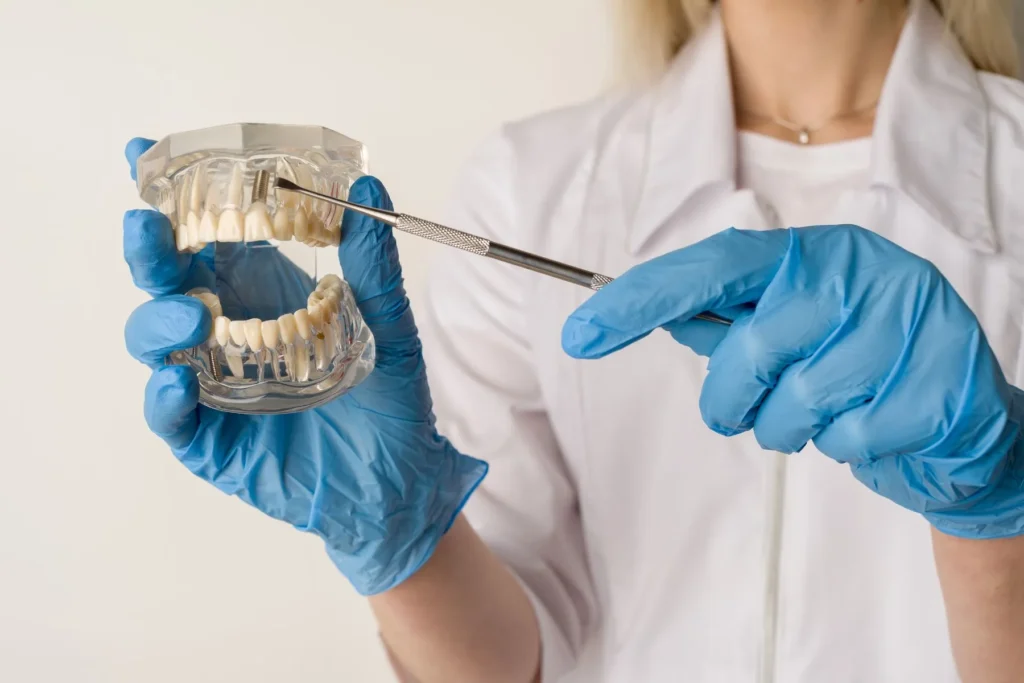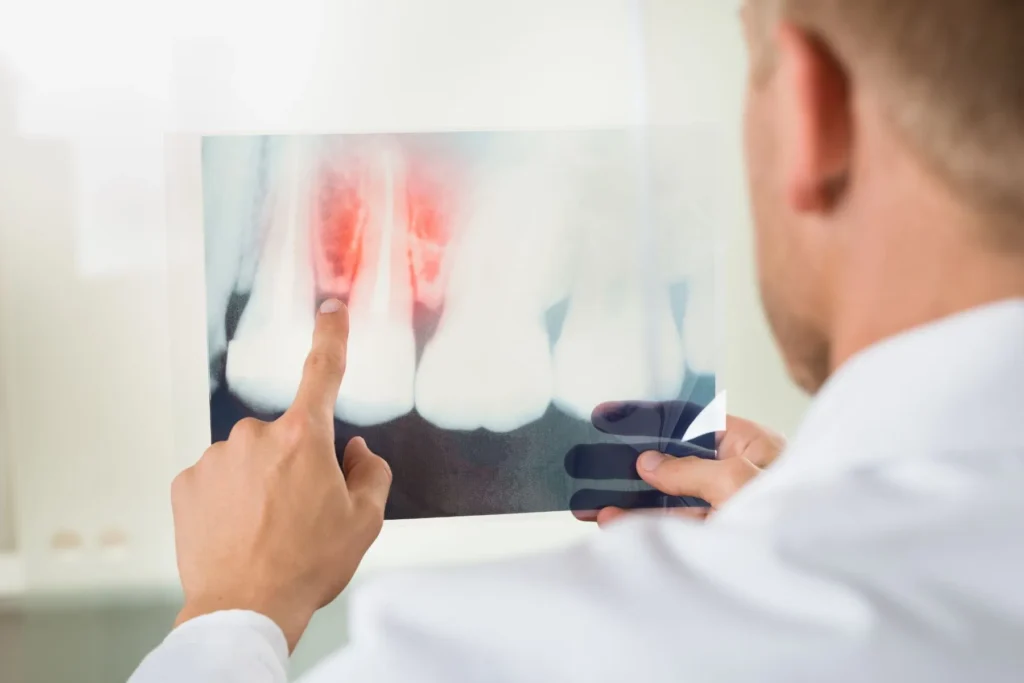Swollen gums are a common oral health issue that can cause discomfort, pain, and in severe cases, lead to serious complications like gum disease. If left untreated, they can contribute to infections, bleeding, and even tooth loss. But what causes swollen gums, and how can you treat them effectively? This guide will provide you with everything you need to know.
Swollen Gums: What Causes Them and How to Prevent Them
Swollen gums can be an early sign of gingivitis, which, if left untreated, can progress into periodontitis. The key to preventing and treating swollen gums is understanding their causes and taking early action to maintain oral health.
Why Do Gums Become Swollen?
Swollen gums can result from a variety of factors, ranging from poor oral hygiene to systemic health conditions.
Common Causes:
- Plaque and Tartar Buildup – Poor oral hygiene leads to bacterial growth, which irritates the gums.
- Hormonal Changes – Pregnancy, menopause, and puberty can make gums more sensitive and prone to swelling.
- Nutritional Deficiencies – A lack of vitamin C or vitamin D can weaken gum tissue.
- Medications – Some prescription drugs cause dry mouth, reducing saliva’s ability to cleanse the gums.
- Smoking and Tobacco Use – Reduces circulation in the gums, delaying healing and increasing inflammation.
- Allergic Reactions – Some people experience swollen gums due to allergies to oral care products.
- Infections – Viral, bacterial, or fungal infections can cause gum swelling.
Symptoms:
Swollen gums are often accompanied by other signs of gum disease. Recognizing these early symptoms can help prevent further complications.
Signs to Watch For:
- Red, puffy gums that appear larger than usual
- Bleeding gums when brushing or flossing
- Persistent bad breath
- Gum tenderness and soreness
- Receding gums exposing more of the tooth
- Loose teeth in severe cases
If you notice persistency, taking action early can help prevent long-term damage.
Immediate Actions for Swollen Gums
If you have swollen gums, here’s what you should do immediately to reduce discomfort and inflammation.
Steps to Take:
- Improve Oral Hygiene – Brush your teeth at least twice a day using a soft-bristled toothbrush.
- Floss Regularly – Clean between your teeth to remove plaque buildup.
- Use an Antiseptic Mouthwash – Helps kill bacteria and soothe irritation.
- Stay Hydrated – Drink plenty of water to stimulate saliva production.
- Apply a Cold Compress – Helps reduce swelling and numb pain.
Natural and Traditional Remedies for Swollen Gums
Several natural remedies can help soothe swollen gums while complementing professional treatments.
Home Remedies:
- Saltwater Rinse – Mix half a teaspoon of salt in a glass of warm water and rinse your mouth for 30 seconds. This natural disinfectant helps reduce swelling, eliminate bacteria, and promote healing.
- Chamomile Tea Rinse – Brew chamomile tea, let it cool, and use it as a mouth rinse. Chamomile has natural anti-inflammatory and antibacterial properties that can soothe swollen gums and provide relief.
- Aloe Vera Gel – Apply a small amount of pure aloe vera gel directly to the swollen gums. Aloe vera is known for its anti-inflammatory and healing properties and can help reduce gum irritation.
- Oil Pulling – Swish one tablespoon of coconut oil in your mouth for 15-20 minutes before spitting it out. Oil pulling is believed to reduce bacteria, support gum health, and minimize swelling.
- Turmeric Paste – Mix turmeric powder with a little water to create a paste and apply it to the gums. Curcumin, the active ingredient in turmeric, has powerful anti-inflammatory and antimicrobial effects that can reduce gum swelling and fight infection.
- Hydrogen Peroxide Rinse – Dilute hydrogen peroxide with water (equal parts) and use it as a mouth rinse. This solution helps kill bacteria, reduce swelling, and promote healing in inflamed gums.
- Clove Oil Application – Dab a small amount of clove oil onto a cotton ball and apply it to the swollen gums. Clove oil has natural analgesic and antibacterial properties that can help relieve pain and reduce inflammation.
- Green Tea Consumption – Drinking green tea regularly can help reduce gum inflammation due to its high antioxidant content. Green tea is also known to improve oral health by reducing harmful bacteria in the mouth.
- These remedies can provide relief, but they are not a substitute for professional dental care. If symptoms persist, consult a dentist for proper evaluation and treatment.
These remedies can provide relief, but they are not a substitute for professional dental care.

Prevention: The Key to Healthy Gums
The best way to deal with swollen gums is to prevent them from happening in the first place.
Essential Preventive Measures:
- Brush twice daily with fluoride toothpaste – Brushing your teeth at least twice a day with fluoride toothpaste is crucial for preventing plaque buildup and strengthening tooth enamel. Make sure to use a soft-bristled toothbrush and gentle circular motions to avoid irritating the gums while effectively cleaning the teeth.
- Floss every day to remove food particles and plaque – Flossing at least once per day is just as important as brushing because it removes food debris and plaque from between the teeth and along the gumline, areas that a toothbrush cannot reach. Regular flossing helps prevent swollen gums and reduces the risk of gum disease.
- Use a mouthwash to reduce bacteria and plaque – Antiseptic or antimicrobial mouthwash can help kill bacteria that cause swollen gums and gingivitis. Look for a product that contains ingredients like chlorhexidine or essential oils to maintain a healthy oral environment and freshen breath.
- Avoid smoking to maintain gum health – Smoking and tobacco use significantly increase the risk of gum disease by reducing blood flow to the gums, impairing healing, and making them more susceptible to infections. Quitting smoking can dramatically improve gum health and prevent long-term damage.
- Eat a balanced diet with plenty of vitamins and minerals – A diet rich in vitamins and minerals, particularly vitamin C and vitamin D, supports gum health and strengthens the immune system. Eating fresh fruits, vegetables, lean proteins, and dairy products can help keep your gums strong and resilient against infections.
- Visit your dentist regularly for check-ups and professional cleanings – Seeing your dentist at least twice a year for routine check-ups and professional cleanings ensures that plaque and tartar buildup are effectively removed before they lead to swollen gums or more severe gum disease. Your dentist can also identify and treat early signs of gum problems before they become serious.
When to See a Dentist for Swollen Gums
If home care and preventive measures don’t resolve swollen gums, it’s time to see a dentist. Ignoring swollen gums can lead to serious gum disease and even tooth loss.
When to Seek Professional Help:
- If swollen gums last for more than two weeks
- If you experience persistent pain or bleeding
- If your gums begin to recede
- If you notice pus or abscesses around your gums
- If you have difficulty eating due to gum pain
A dentist can perform a deep cleaning, prescribe medication, or recommend treatments like scaling and root planing to remove tartar from below the gumline.
Conclusion: How to Treat Swollen Gums
Swollen gums can be a warning sign of gum disease, but early intervention can prevent serious complications. By maintaining a solid oral hygiene routine, using effective remedies, and seeking professional help when necessary, you can keep your gums healthy and avoid long-term damage.
If you’re struggling with swollen gums, schedule a dental appointment as soon as possible to prevent further complications and restore your oral health.






